Antivirus tea is a potent natural cure that could increase your immune system’s ability to fight off viral infections. Instead of relying on drugs alone, you can use the antiviral properties found in certain ingredients to construct your defense mechanism. This article will help you know about the powerful antiviral tea recipe that you can easily prepare at home.
The Science Behind Antiviral Tea Recipe

For centuries now, antiviral herbs as well as constituents have been used in traditional medicine to fight infections and boost immunity. Consuming them as tea helps in keeping viruses away from your body, thus promoting your overall health.
Research has shown that viral growth can be halted by medicinal plants as per traditional practice; similarly, they are also known to make the human immune system stronger. It is therefore important for you to understand the individual benefits of essential herbs and ingredients having antiviral properties for effective tea.
1. Understanding the Key Antiviral Herbs in Our Recipe:
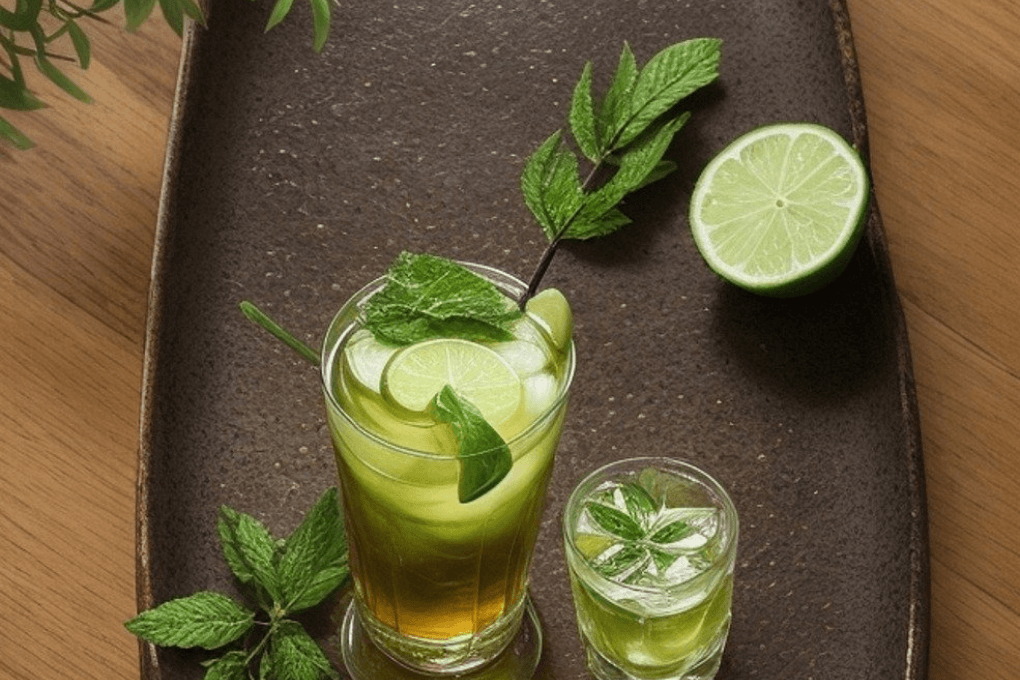
Holy Basil: It is also referred to as tulsi. It has amazingly strong abilities against bacteria and viruses and has been used for respiratory infection support for ages.
Echinacea: The herb is commonly known to enhance immunity and may help reduce the risk of colds or other respiratory infections.
Dandelion: Dandelions are rich in antioxidants that can help to decrease inflammation, which helps fight viral infection.
Ginger: Your tea gets a better taste when ginger is added; this is because it contains substances that can kill germs and prevent them from spreading.
2. Other Essential Antiviral Tea Ingredients to Explore:
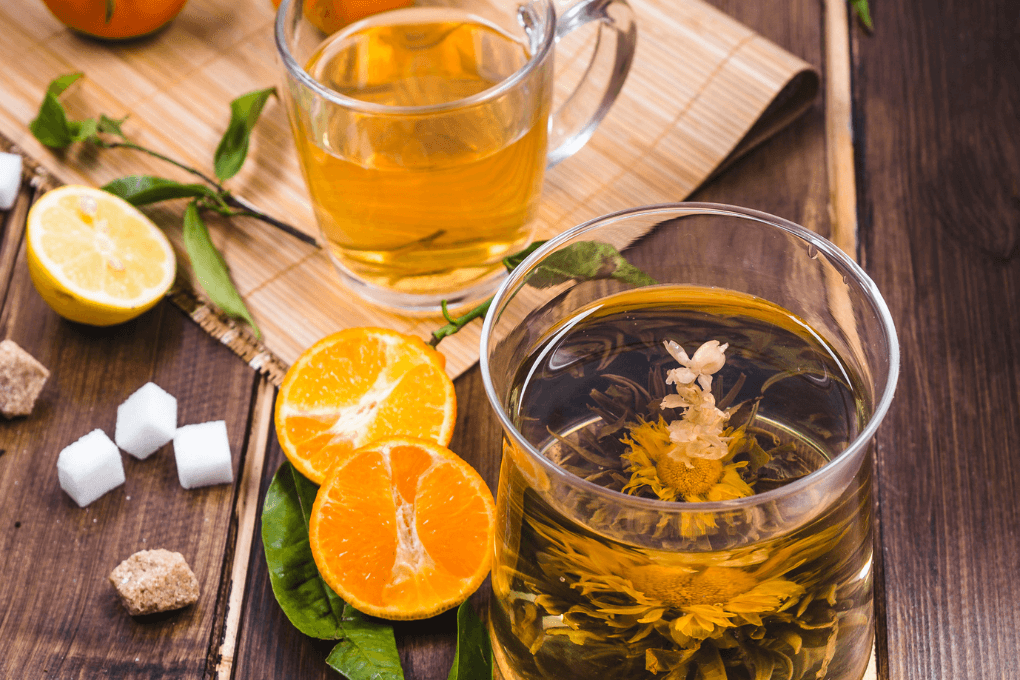
Fennel: Consequently, the reason fennel seeds are often recommended for antiviral tea recipes is because they contain powerful substances that can fight viruses.
Lemon Balm: This herb calms and combats viral infections. Additionally, it tastes good and strengthens the immune system in general; therefore, it makes a good addition to herbal teas.
Oregano: Viral infection may be helped by Oregano due to its rosmarinic acid which can counteract viruses.
Make a delicious beverage that will also help your immunity by using these important antiviral herbs and ingredients in your homemade tea mix.
The Recipe: Immuni-Tea – Your Ultimate Defense Against Viruses
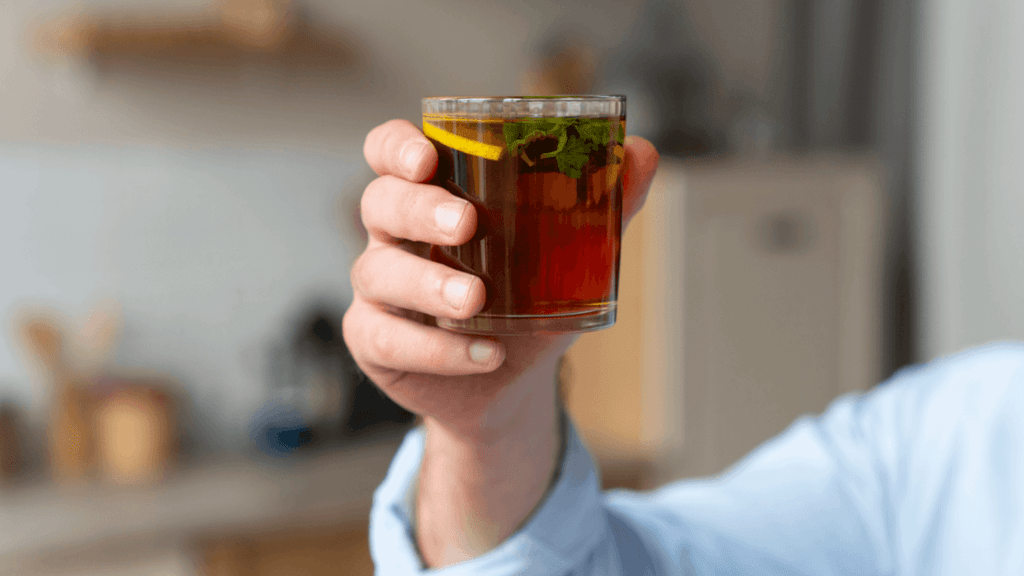
Now that we’ve looked at the science behind antiviral tea recipes and the advantages of including healthy herbs and spices, let’s try making our powerful blend. The Immuni-Tea is a unique formulation designed to boost your body’s natural defenses against viruses through a combination of specific ingredients with well-documented antiviral properties.
Ingredients
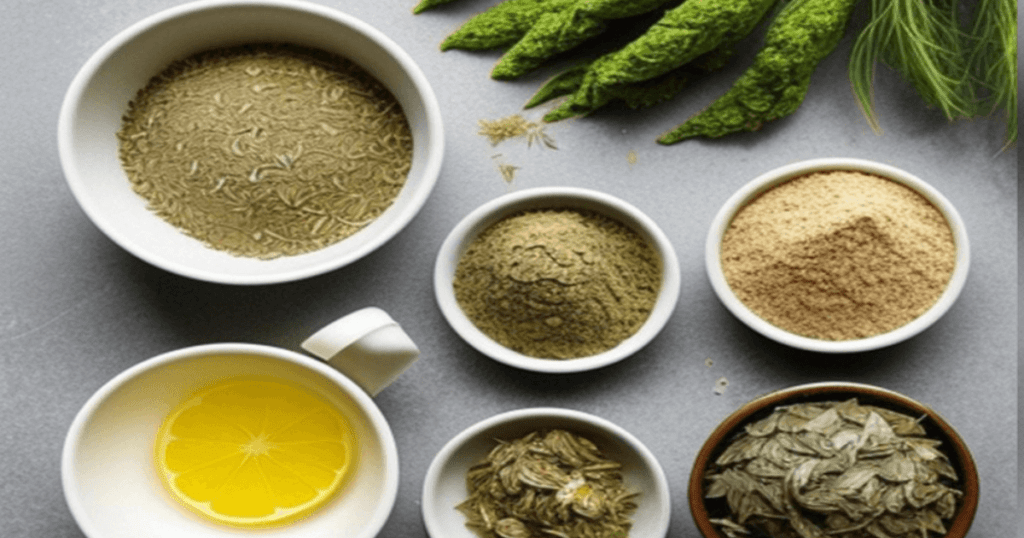
These are the main things you will need to make the Immuni-Tea:
- Green Tea: 1 tablespoon
- Holy Basil: 1 teaspoon (dried)
- Echinacea: 1 teaspoon (dried)
- Dandelion: 1 teaspoon (dried)
- Ginger: 1 teaspoon (freshly grated)
- Fennel: 1 teaspoon (dried)
- Lemon Balm: 1 teaspoon (dried)
- Oregano: 1 teaspoon (dried)
Instructions
- Here’s how you can brew your own Immuni-Tea:
- Take a saucepan, measure two cups of water and put in the boiling process.
- Drop some green tea leaves and all the dried herbs into the boiling water.
- The flame should be low enough to let this mixture boil for five minutes.
- Switch off the cooker after removing it from the heat and mix with grated ginger which is fresh.
- Cover your saucepan & wait for an additional 5 minutes as you brew your tea
- Strain the tea into a cup using a fine mesh strainer that would hold back all herbs and leaves.
- Your Immuni-Tea is now ready to serve.
Serve Hot
If you like, add some raw honey or lemon juice to your Immuni-Tea to make it more nutritious and taste better.
Make a healthy drink that will boost the immune system by using this basic formula. To improve one’s health, it is suggested that they consider taking homemade antiviral tea, but it should not be mistaken as a panacea; rather, one has to lead a healthy life and eat a balanced diet for maximum effectiveness.
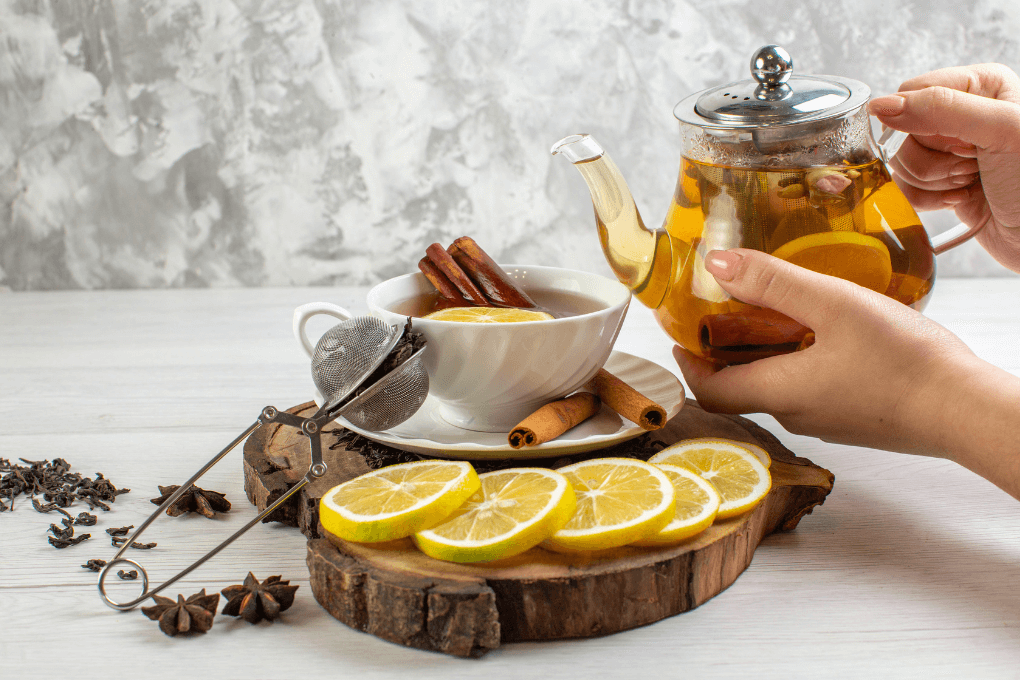
Tips for Enhancing the Antiviral Efficacy and Flavor of Your Tea
The choice of ingredients is vital in creating a potent anti-viral tea that has an appealing taste. Thus, knowing how to incorporate particular herbs into homemade brew for maximum antiviral benefits and overall taste is important.
1. Harnessing the Power of Sage and Peppermint
Sage – It is an aromatic herb that possesses antiviral, antibacterial, and anti-inflammatory characteristics. This makes it a valuable component of your antiviral blend because it can be used to calm coughs and sore throats when used as a tea. To know how to use sage effectively, you should consider including 1-2 teaspoonful of dried leaves per cup of hot water and allowing steeping for between five and seven minutes before straining the liquid and consuming this soothing infusion.
Peppermint – In addition to its refreshing flavor, peppermint has potential antiviral effects that help balance out other ingredients in your antiviral tea while making it pleasant tasting and smelling. To know how to incorporate e peppermint well, you need one or two dried teaspoons per cup full of hot water; give this around five to ten minutes for complete extraction of the energizing spirit from this substance
2. Adding a Twist with Rosemary: Exploring an Alternative Ingredient
When it comes to creating an effective anti-viral tea, the selection of ingredients is crucial not only in enhancing its effectiveness but also in providing a pleasant taste. Below are steps you can take to include various herbs into your homemade drink that will ensure maximum antiviral benefits and general flavor:
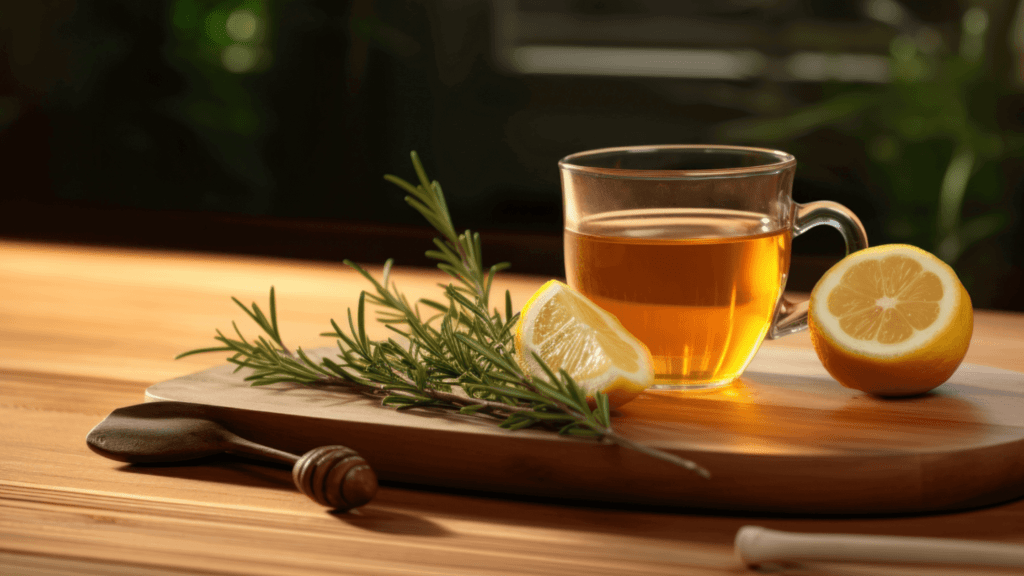
Rosemary – Rosemary is primarily known for its culinary purposes although it has other several probable health advantages like antimicrobial and antioxidant properties. When mixed appropriately into an antiviral tea blend, rosemary can add a slight earthy touch that blends well with other flavors in the mixture. As one attempts this other ingredient, it could be added by including a small sprig or half a teaspoonful of dried rosemary per cupful of hot water.
By carefully combining these plants into your recipe for antiviral tea, you will not just increase the chances of the immune system fighting off diseases but also get a sweetener that feeds both the soul and body.
Other Variations of Antiviral Tea Recipes to Try
Some other things you could try are a couple of different tea recipes, which have alternative mixes of antiviral herbs and ingredients in them to cater for your taste or ingredient availability:
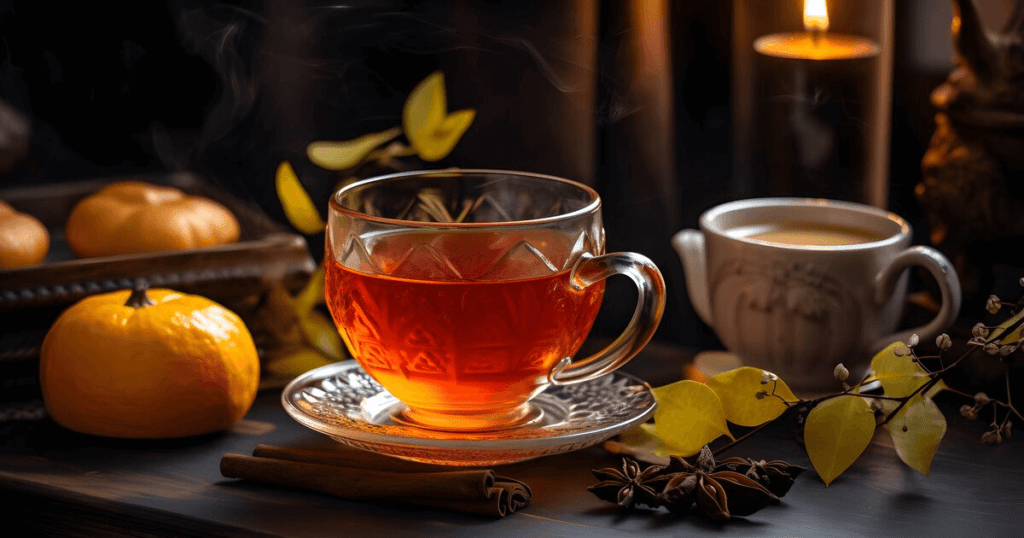
1. Citrus Delight Tea
Lemon and orange have the antiviral effects in this refreshing tea while chamomile gives soothing effects. This is how it is made:
Ingredients:
- 1 tablespoon chamomile flowers
- 1 teaspoon lemon peel
- 1 teaspoon orange peel
- Honey (optional, for sweetness)
Directions:
- In a pot, boil two cups of water.
- Add chamomile flowers, lemon peel, and orange peel.
- Turn down the heat and let the mixture simmer for about five minutes.
- Remove from heat and strain into cups.
- You can add honey if needed.
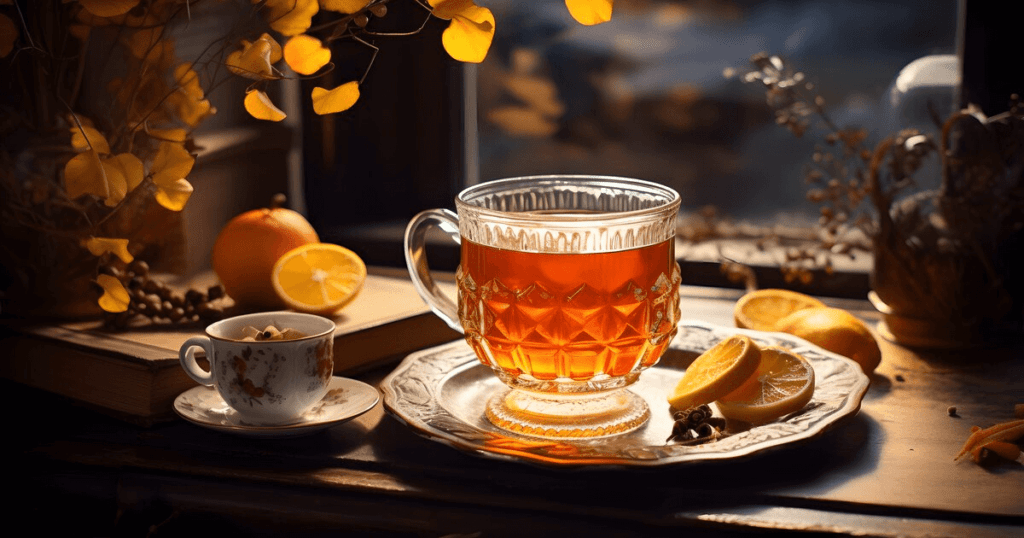
2. Spiced Berry Infusion
This hot tea has a mix of antiviral properties from berries and the smell of spices to make you cool. Here is how you can make one:
Ingredients:
- A cup full of mixed berries like raspberries, blueberries, and strawberries
- A stem of cinnamon
- Two cloves
- Two cups of water.
- Honey (optional, for sweetness)
Instructions:
- Mix together the berries, a stick of cinnamon, two cloves, and two cups of water in a saucepan.
- Let it boil for some time on medium heat.
- Put over low heat and simmer covered for about 10 minutes.
- Strain out into cups off the flame.
- You may add honey if needed to sweeten it as desired.
These variations have different flavors with different combinations of antiviral ingredients that give your tea an identity according to your preferences. Moreover; explore other beneficial herbs and spices such as cinnamon that help fight inflammation or the best teas for inflammation which would be a great idea for your tea recipes. Finally, adjust quantities to suit your taste buds and benefit from these tasty antiviral-infused teas that boost one’s immunity system!
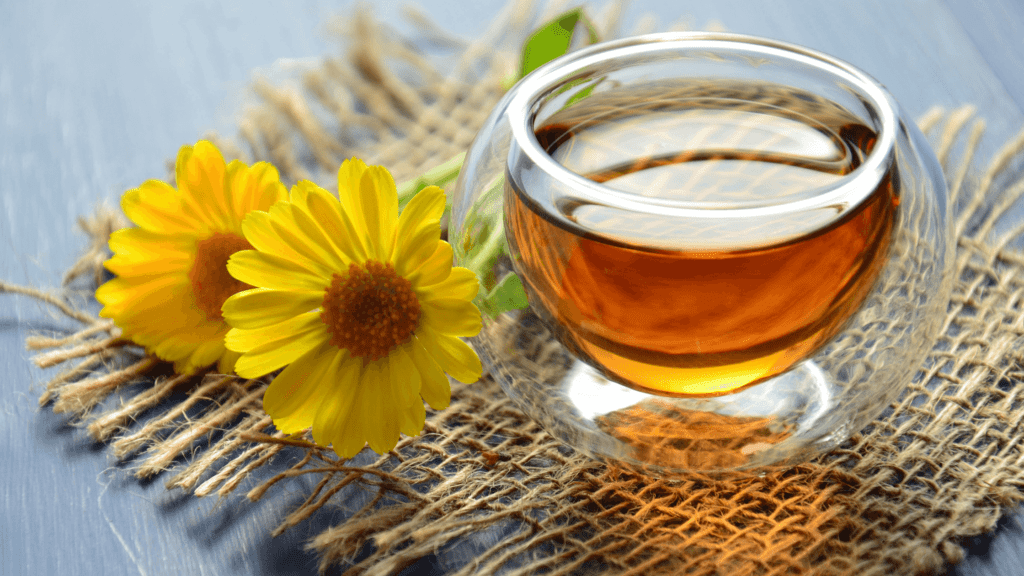
Incorporating Antiviral Teas into Your Daily Routine for Optimal Protection
When it comes to the addition of antiviral teas into your everyday life, it is essential that you carefully consider when and how often you have them in order to get maximum benefits for your immune system. Here is a complete guide on how to get the most out of antiviral teas while taking care about potential precautions and side effects:
Timing of Consumption
Kickstart your immune system by taking a cup of antiviral tea early in the morning.
Research has shown that nutritional status plays an important role in maintaining proper immune function; therefore, when there are changes in seasons or other periods where one feels susceptible to infections, s/he can sip on some antiviral tea.
Frequency of Consumption
In order to have a good immune system this should be done every day when there is an upsurge of viruses or when you need your immune system boosted. These are the situations where preventive measures such as hand hygiene may not be enough to prevent illnesses.
Change how often you use them depending on your health condition and how easily you can get infected. On one hand, frequent consumption might be good for those with weakened immunity. On the other, some people could stick to having fewer intakes.
Precautions and Potential Side Effects–Antiviral Tea Recipe
You should also be conscious of any possible allergens in the ingredients used to make this tea. For instance, if you have allergic rhinitis, it is important to ensure that the herbs used do not cause adverse reactions.
Some herbs may induce gastrointestinal discomfort among certain individuals; so, it’s wise to begin with small amounts and observe how your body responds. Moreover, patients are always advised to consult healthcare providers especially when they have other medical conditions or concerns.
By optimizing antiviral teas in your life pattern considering timing, regularity, and likely effects; you can utilize their potential immune-boosting qualities effectively while being aware of what your own body wants However, note that while antiviral teas can enhance your armamentarium against diseases, they cannot replace other preventative measures like good hygiene practices and general influenza prevention tips.
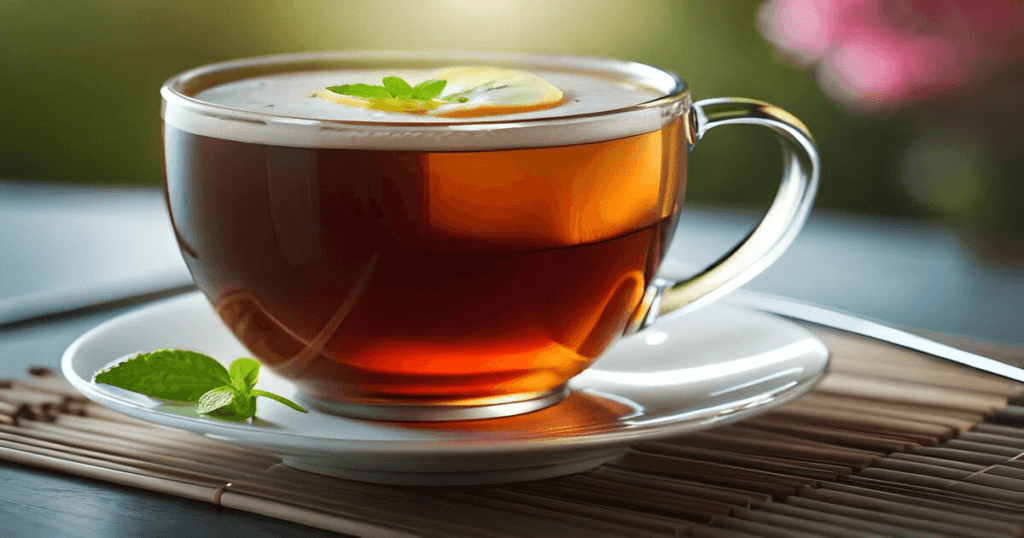
Finding High-Quality Antiviral Tea Blends: A Buying Guide
When it comes to selecting and purchasing already-made antiviral tea products, you need to take into consideration a number of elements so that you can obtain a mixture of high quality that will deliver the required antiviral effects. Below are some guidelines on how to navigate through the market and make informed choices:
1. Ingredient Quality of antiviral tea recipe
Always look for products that use organic or wild crafted ingredients because these ensure purity and potency. In fact, this is similar to clean beauty where natural and safe substances are given priority. Stay away from teas having artificial additives or fillers since these may undermine the antiviral traits of the tea.
3. Reputable Brands
Choose teas produced by reputable brands that have a history of providing quality and effective products in their respective markets. The opinions of other customers and certification from regulatory bodies can be useful when determining whether one brand can be trusted or not.
Being mindful about such things helps one in making better choices while buying anti-viral teas thereby ensuring that they receive a product that meets their health objectives at all times.
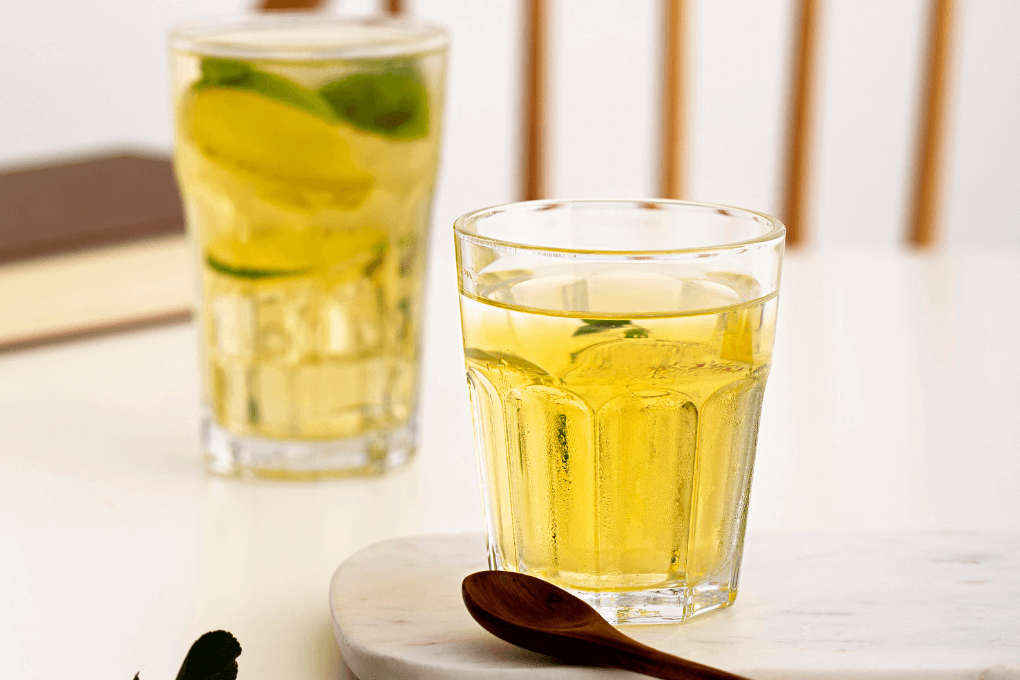
FAQs-Antiviral Tea Recipe
What are the best antibacterial teas?
Teas Made from Lemongrass – Antibacterial effects of lemongrass tea, its antioxidant properties and anti-inflammatory capabilities have been proven scientifically, recently. Teas Made from Hibiscus – Roselle teas are generally antimicrobial and can be used to improve the health of users.
What tea is good for infection?
Green tea has been drunk for centuries because of the good things it contains. Green teas are rich in anti-oxidants called Polyphenols. Polyphenols are strong infection fighters. They keep off possible viruses, infections, and illnesses from attacking the body.
What is a good antifungal tea?
Pau d’Arco and Lemongrass are two of my favorite antifungal teas. Although there exist many effective maintenance teas that are good for use between cleanses, these two herbs stand out because they are super potent anti-fungal agents, best suited for a targeted cleanse program such as this one.
What is the strongest natural antibiotic?
Carvacrol and thymol in oregano oil have the strongest antibacterial and antifungal properties. These destroy many types of bacteria, including those that are resistant to antibiotics and treat E. coli very effectively.
What tea kills bacteria in the body?
They discovered that green tea catechins serve as inhibitors against DNA gyrase in bacteria—a target for several extant drugs used clinically.
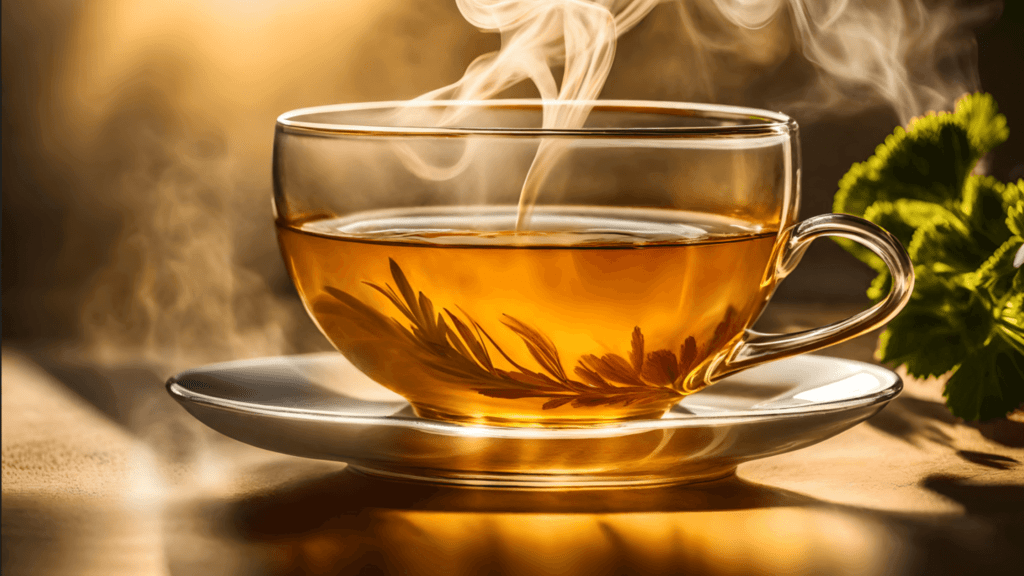
Final Thoughts about Antiviral Tea Recipe
Strengthen your immune system naturally by consuming antiviral tea. Generally, ingredients such as holy basil, Echinacea, ginger, and lemon balm are the ingredients in antiviral teas that help to boost your immunity. These teas act as general health boosters in that they have health benefits without the intake of traditional medicine. They come in different flavors, which are enjoyable to consume. New tastes and the benefit of the antivirals make them enjoyable. Drinking these teas regularly can help you get better if you’re sick and can also help prevent you from getting sick. But it’s important to talk to your doctor before you make changes in your diet or go down the road of herbal remedies. With the consumption of antiviral teas within the framework of a harmonious lifestyle, you help your body resist diseases. Cheers to staying healthy!
You May Love To Read This Another content: Lavender Tea Latte Recipe
